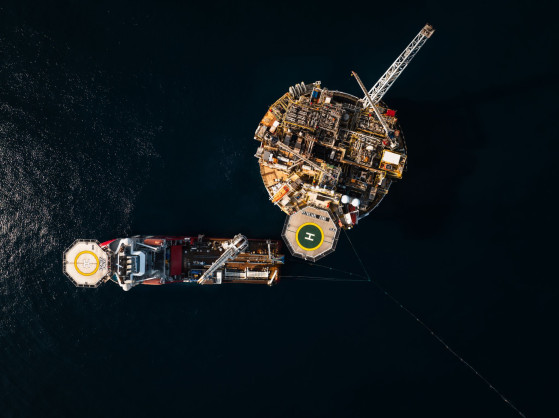Eni, a major player in the energy sector, has officially launched Phase 2 of the Baleine field, located offshore Ivory Coast. This significant development is not only the largest discovery in the country but also the first net-zero emission upstream project in terms of Scope 1 and 2 on the African continent. With Phase 2 kicking off just two years after the final investment decision (FID) and one-and-a-half years after the start of Phase 1, Eni and its partners, including the national oil company Petroci, have demonstrated remarkable efficiency and commitment.
The African Energy Chamber (AEC), representing the voice of the African energy sector, applauds Eni and its collaborators for this achievement. The Baleine field project sets the stage for Ivory Coast to become a key player in West Africa’s oil and gas industry. Production at the Baleine field is expected to reach 60,000 barrels of oil per day (bpd) and 70 million cubic feet of associated gas with the startup of Phase 2. The deployment of the FPSO Petrojarl Kong and FSO Yamoussoukro vessels will facilitate the export of energy resources to international markets while also meeting local energy demands.
Looking ahead, Eni is planning to advance Ivory Coast’s position as a regional energy hub with the upcoming Phase 3 of the Baleine project. This phase aims to increase production to approximately 150,000 bpd and 200 million cubic feet of associated gas, reinforcing the country’s standing as a major energy player in the region. Ivory Coast’s emergence as a powerhouse in the oil and gas sector is supported by a robust regulatory framework, attractive fiscal terms, and strategic partnerships.
In addition to the Baleine field, Eni’s discovery in Block CI-205, known as the Calao field, in March 2024 is estimated to hold up to 1.5 billion barrels of oil. This significant find is expected to generate substantial revenues and create 8,000 jobs. Plans are underway to begin exploiting the Calao field by 2026, further enhancing Ivory Coast’s energy security and economic growth. The AEC is dedicated to backing Ivory Coast’s efforts to reduce energy poverty, promote local content, and drive economic development.
Ivory Coast’s progressive policies have attracted investments from leading energy companies, positioning the country as a regional hub for energy production and exploration. The success of the Baleine field project exemplifies the potential that arises when innovation aligns with efficient governance. Ivory Coast not only plays a pivotal role in West Africa’s energy sector but also serves as a blueprint for the future of African oil and gas development.
This article was distributed by APO Group on behalf of the African Energy Chamber and highlights the remarkable progress and prospects in Ivory Coast’s energy sector.








